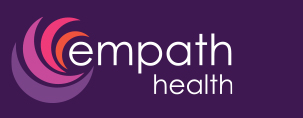
Suncoast Hospice Physician Mary Waechter, MD
Hospice care revolves around meeting the choices, goals and comfort of patients and their families. That means soothing physical pain, listening to concerns and calming minds, hearts and spirits.
Our three Suncoast Hospice Care Centers provide short-term stays for specialized care, pain and symptom management and support for our hospice patients. Our goal is to help improve their comfort level so they can go back home or move to another location. Some patients may even live their last days or hours at our Care Centers.
Mary Waechter, MD is a Suncoast Hospice physician at our Care Center Mid-Pinellas. In part one of our Q&A, she discusses her journey to medicine, her rewarding hospice work and the comfort and satisfaction the care team brings for patients and families.
Q&A with Dr. Mary Waechter Part 1
1. How long have you worked for Suncoast Hospice?
Since August 2014.
2. Why did you choose to become a doctor?
I am the youngest of nine in the family. Many of my siblings came from business. I started as a business major in undergrad. My college roommate was pre-med and I found myself peeking over her shoulders. After we finished school, I worked in the business field in banking and investments.
I looked at business and my job as a win-loss. If I made a good deal and did something good for my client, it meant somebody else made a bad deal and was at a loss. And I looked at if she (my roommate) did a good job then her patient benefited, and I wanted to be in that win-win situation. I took the plunge and quit my banking job. I applied to med school in Miami, got my degree and stayed there.
3. What drew you to the hospice care field?
I did my internship and residence in internal medicine. I was a hospitalist for the first 15 or so years, and in the hospital was a hospice unit. This was in Miami Beach, a retirement area. I did admissions for a group of docs. I had a large patient population and they were frequently admitted. We would have conversations about where they are in the disease process and where they are in their life. We would often offer hospice care. And since patients were in the hospital, I would follow them in one wing to the hospice care unit. I thought it was an incredible service for patients and families.
I started in hospice care doing inpatient work as a full-time hospitalist and a part-time hospice physician for Vitas Healthcare. Then I was a full-time hospitalist and a part-time palliative physician for UF Health Shands Hospital in Gainesville. After a couple of years of doing that, I decided to come back home to St. Pete and do hospice full-time here.
4. What is it like doing hospice care?
Hospice care is very different but I still feel it’s a win-win situation. If I do a good job, then my patients and families are better off. Patients are not cured of their physical illness, but we talk about what their goals are and how they feel about being in the last chapter or even last pages of their story here on Earth. We are smoothing the edges for patients to hopefully give them a soft landing.
5. What is it like working with the staff?
They are fantastic. I could not be more fortunate with my colleagues and the folks here at the Care Center. I find them to be very supportive and helpful. I love being able to contribute to what we do. I first worked with the admissions team before coming to the Care Center. I was so impressed with how hard they worked at getting consults and patients enrolled so we can provide support.
6. How do you care for patients and families?
So many of the patients we get at the Care Center come and pass away while they are here. Sometimes the hardest we work is when patients get here and die within an hour. Families are in tears with gratitude that their family members were able to get here and be comfortable and clean by our staff in less than half an hour. About a year ago I had a family and they were crying because they were happy. I hadn’t even written an order or met the patient. I went in to give my condolences to the family and see how they were doing and a woman was thanking me.
There is support and care for the entire family. In some cases the families are suffering at that stage more than the patients. It is helping people get comfortable so they can let go. Then we follow up to make sure families are okay and to walk with them through their grief and bereavement process. Sometimes, that’s when our work is just beginning.
Stay tuned for part 2 of our Q&A with Dr. Waechter later this month.
Contact us
For more information about services, contact us online or at (727) 467-7423.
Looking for a life-changing career?
Check out our latest job openings and apply online.

Dr. Mary Waechter is an exceptional physician, kind and compassionate. She is an expert in End of Life Care and this knowledge not only benefits her patients and their families but also those around her who learn from her daily interactions with those admitted to our MPCC. We are fortunate to have her in our team.